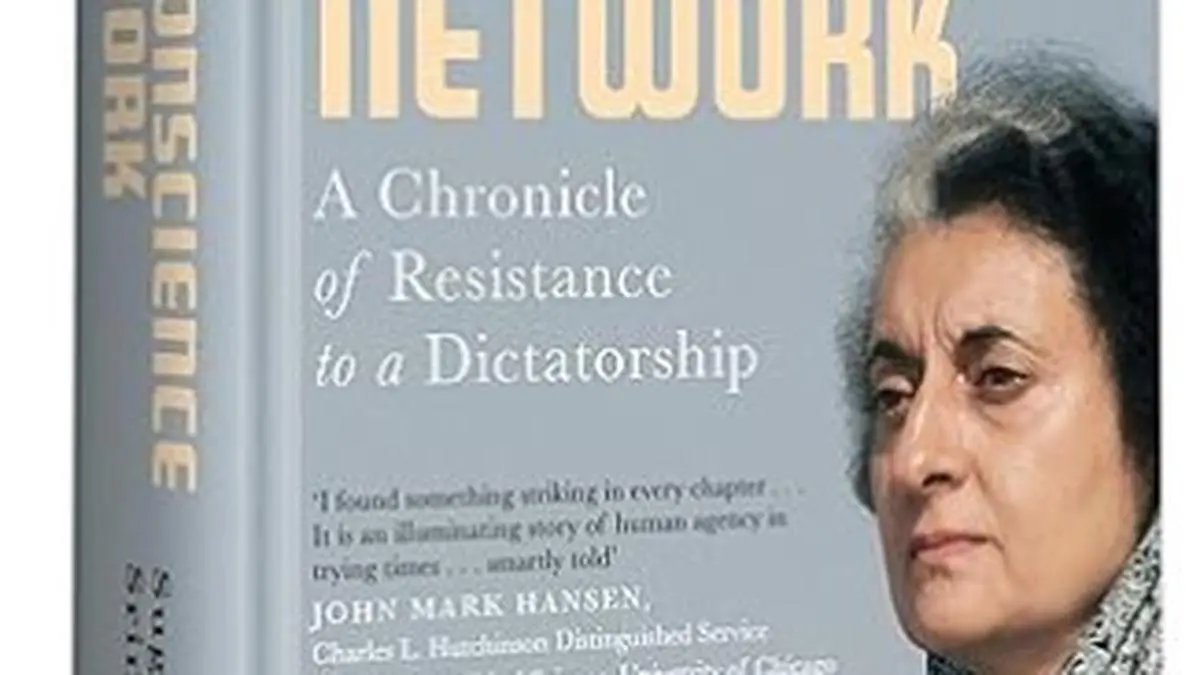Science
Unsung Heroes of the Emergency: Diaspora’s Fight for Democracy

The resistance to the Emergency in India from 1975 to 1977 is often associated with prominent figures such as Jayaprakash Narayan and George Fernandes. However, a lesser-known group of Indians in the United States also fought valiantly against this authoritarian regime, often at significant personal risk. In his new book, The Conscience Network – A Chronicle of Resistance to a Dictatorship, author Sugata Srinivasaraju meticulously chronicles the efforts of these diaspora activists who formed the organization Indians for Democracy (IFD).
The IFD emerged as a grassroots movement composed of professionals and students in the US who were deeply concerned about the political situation in India. Srinivasaraju documents their protests, including marches and the publication of Indian Opinion, a magazine that brought attention to the human rights abuses committed during the Emergency. The organization aimed to forge a broad coalition against the government’s oppressive measures, collaborating with various personalities and organizations, including the Quakers and renowned intellectuals such as Noam Chomsky.
Srinivasaraju provides detailed accounts of how the IFD interacted with influential figures, including Horace Alexander and Bayard Rustin. The Quakers’ commitment to non-violence resonated with the IFD’s Gandhian principles, enhancing their collaborative efforts. The book also delves into the political climate in India during the early 1970s, setting the stage for the Emergency declaration.
The government retaliated against these dissenters, as highlighted by the case of Anand Kumar, whose scholarship was revoked, causing distress within the academic community at the University of Chicago. Srinivasaraju details the strong support Kumar received from faculty and students, who criticized the Indian government’s actions.
An entire chapter is dedicated to the Indian Embassy’s defense of the Emergency, particularly that of T.N. Kaul, the Indian Ambassador to the US. Kaul aggressively defended the government’s actions in interviews and wrote an article in the New York Times, claiming the Emergency was necessary to protect democracy in India. Srinivasaraju points out the irony of a diplomat advocating for a regime that suppressed civil liberties.
By 1976, the IFD recognized the prolonged nature of the Emergency, particularly after the Supreme Court’s controversial ruling on the Habeas Corpus case, which suspended even the right to life under the Emergency. In response, the IFD intensified its efforts to document human rights violations through their publications.
The US political landscape also became involved in the IFD’s resistance efforts. The Fraser Committee, a subcommittee of the US House of Representatives, held hearings on the political situation in India. Members of the IFD, including Shrikumar Poddar and Leila Fernandes, testified, bringing attention to the abuses occurring back home. Their testimonies, alongside remarks by Senator Edward Kennedy, garnered significant media coverage.
Despite facing pressure from both the political left and right, the IFD maintained a steadfast, non-violent approach, exemplified by their padayatra—a traditional Indian march—from Boston to New York, culminating at the United Nations headquarters. The unexpected end of the Emergency in early 1977 brought initial excitement to the IFD, with some members actively participating in the electoral campaign of the Janata Party.
Yet, this enthusiasm quickly turned to disillusionment as many former dissenters, now in positions of power, sought to maintain the Maintaining Internal Security Act (MISA), under which they themselves had been imprisoned. The internal conflicts within the Janata Party further disheartened IFD members.
In the years following the Emergency, some IFD members returned to India, with figures like Hiremath and Ravi Chopra establishing NGOs focused on grassroots development. Anand Kumar pursued a successful academic career, first at BHU and later at JNU.
Srinivasaraju’s thorough documentation of the IFD and the diverse personalities involved provides a compelling narrative of resistance during a dark chapter in Indian history. His previous works on Indian political figures lend credibility to his storytelling. However, a minor error in the text—referring to Bruno Kreisky as the Australian Chancellor instead of the Austrian Chancellor—highlights the need for careful editing in future editions.
The book, published on July 29, 2025, is a valuable contribution to understanding the multifaceted resistance against the Emergency, showcasing how a determined group of expatriates stood up for democracy during a time of crisis.
-

 World5 months ago
World5 months agoSBI Announces QIP Floor Price at ₹811.05 Per Share
-

 Lifestyle5 months ago
Lifestyle5 months agoCept Unveils ₹3.1 Crore Urban Mobility Plan for Sustainable Growth
-

 Science5 months ago
Science5 months agoNew Blood Group Discovered in South Indian Woman at Rotary Centre
-

 World5 months ago
World5 months agoTorrential Rains Cause Flash Flooding in New York and New Jersey
-

 Top Stories5 months ago
Top Stories5 months agoKonkani Cultural Organisation to Host Pearl Jubilee in Abu Dhabi
-

 Sports5 months ago
Sports5 months agoBroad Advocates for Bowling Change Ahead of Final Test Against India
-

 Science5 months ago
Science5 months agoNothing Headphone 1 Review: A Bold Contender in Audio Design
-

 Top Stories5 months ago
Top Stories5 months agoAir India Crash Investigation Highlights Boeing Fuel Switch Concerns
-

 Business5 months ago
Business5 months agoIndian Stock Market Rebounds: Sensex and Nifty Rise After Four-Day Decline
-

 Sports5 months ago
Sports5 months agoCristian Totti Retires at 19: Pressure of Fame Takes Toll
-

 Politics5 months ago
Politics5 months agoAbandoned Doberman Finds New Home After Journey to Prague
-

 Top Stories5 months ago
Top Stories5 months agoPatna Bank Manager Abhishek Varun Found Dead in Well









